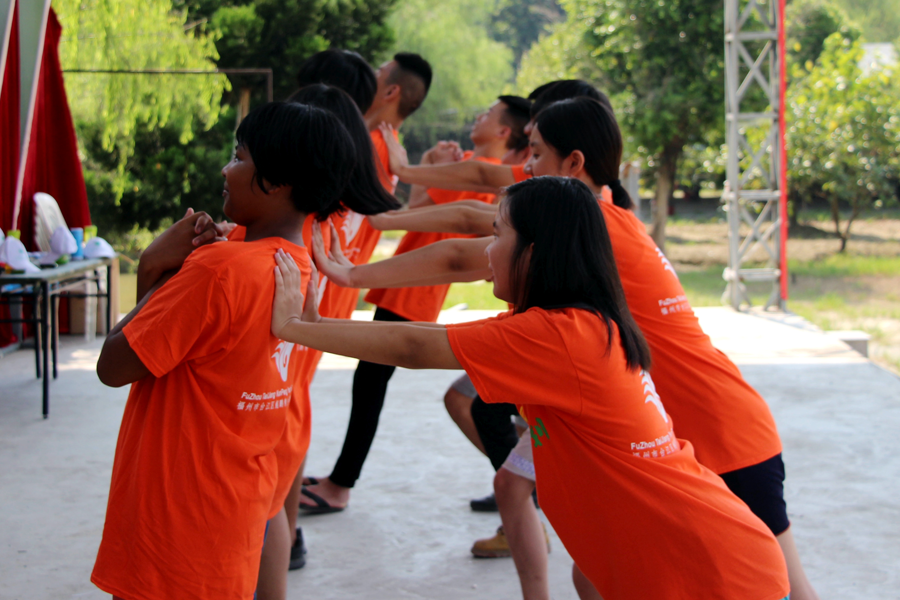Social workers engage with problem teenagers
By Li Lei in Fuzhou | China Daily | Updated: 2018-01-23 09:50

Many teenagers are attracted to places equipped with karaoke facilities, musical instruments and alcohol, so the Kunpeng Youth Service Center in Fuzhou, capital of the southeastern province of Fujian, provides similar activities in the hope of keeping troubled young people away from crime.
"The program, called Xin Hangxiang, or "New Course", provides classes in topics such as coffee making along with entertainments, including karaoke and pool tables that cater to young people's interests," said Shi Yeyuan, Kunpeng's executive director. "But they have to pay for the good time we give them by doing volunteer work."
Kunpeng, an NGO founded in 2008 that provides services to the Fuzhou government, is a key player in the fight against juvenile delinquency. It also helps to rehabilitate delinquents in the city, which has a large number of migrant workers whose children rarely receive parental guidance and often attend low-quality schools, which can make them more susceptible to bad influences.
In 2015, the local government engaged Kunpeng to provide New Course in an attempt to tackle youth problems.
Under the program, Kunpeng cooperates with local police, prosecutors and courts to help delinquents via a program called the Time Bank under which it rents basements in communities and provides karaoke equipment and pool tables. Young people in the community are encouraged to undertake volunteer work in exchange for free access to the facilities.
"It was hard at the beginning because these young people are full of hostility and hide themselves behind their 'armor', but when we approached them with care and patience they showed their tender side," Shi said.
According to Kunpeng, the center now has 12 licensed social workers with an average age of 25, and more than 1,000"problem teenagers" have been rehabilitated since the program began.
In addition to New Course, Kunpeng has devised a program to prevent crime at the earliest stage. Under the program, Kunpeng receives a list of problem students at local schools who are involved in bullying or gang fights or have developed bad habits such as smoking and drinking.
Team members visit communities to speak with families that could fall prey to youth problems - single-parent families, those where the parents have remarried and those where grandparents have been left in charge of volatile young people.
The social workers talk to vulnerable teenagers and arrange activities, such as basketball matches or dance clubs, to engage them and make friends with them.
They also attempt to identify problems that could result in delinquent behavior and then intervene using a psychology-based approach.
Kunpeng also arranges lectures on the law, management of emotions and interpersonal skills to help teenagers overcome any problems they may encounter.
According to statistics supplied by a middle school in Fuzhou that has benefited from the program, the number of problem teenagers on campus has fallen by more than 20 percent in the three years since Kunpeng was brought in, and the number of students who drop out has fallen by 80 percent.
Shi said the NGO has produced tangible results since it was founded a decade ago, and its efforts have been recognized by local governments in the province.
"The local authorities have been promoting centers like ours as a result of Kunpeng's effectiveness," she said.
























